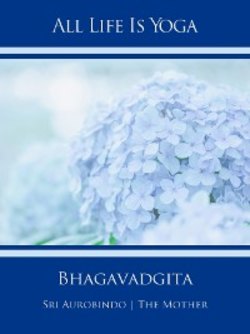Читать книгу All Life Is Yoga: Bhagavadgita - Sri Aurobindo - Страница 31
Chapter 15 The Yoga of the Supreme Person
Оглавление1. The Blessed Lord said:
With its original source above (in the Eternal), its branches stretching below, the Aswattha is said to be eternal and imperishable; the leaves of it are the hymns of the Veda; he who knows it is the Veda-knower.
2. The branches of this cosmic tree extend both below and above (below in the material, above in the supraphysical planes), they grow by the gunas of Nature; the sensible objects are its foliage, downward here into the world of men it plunges its roots of attachment and desire with their consequences of an endlessly developing action.
3-4. The real form of it cannot be perceived by us in this material world of man’s embodiment, nor its beginning nor its end, nor its foundation; having cut down this firmly rooted Aswattha by the strong sword of detachment, one should seek for that highest goal whence, once having reached it, there is no compulsion of return to mortal life; I turn away (says the Vedantic verse) to seek that original Soul alone from whom proceeds the ancient sempiternal urge to action.
5. To be free from the bewilderment of this lower Maya, without egoism, the great fault of attachment conquered, all desires stilled, the duality of joy and grief cast away, always to be fixed in a pure spiritual consciousness, these are the steps of the way to that supreme Infinite.
6. There we find the timeless Being which is not illumined by sun or moon or fire (but is itself the light of the presence of the eternal Purusha); having gone thither they return not; that is the highest eternal status of My Being.
7. It is an eternal portion of Me that becomes the Jiva in the world of living creatures and cultivates the subjective powers of Prakriti, mind and the five senses.
8. When the Lord takes up this body (he brings in with him the mind and the senses) and in his going forth too (casting away the body) he goes taking them as the wind takes the perfumes from a vase.
9. The ear, the eye, the touch, the taste and the smell, using these and the mind also, He enjoys the objects of mind and sense as the indwelling and over-dwelling Soul.
10. The deluded do not perceive him in his coming in and his going forth or in his staying and enjoying and assumption of quality; only they perceive who have the eye of knowledge.
....
